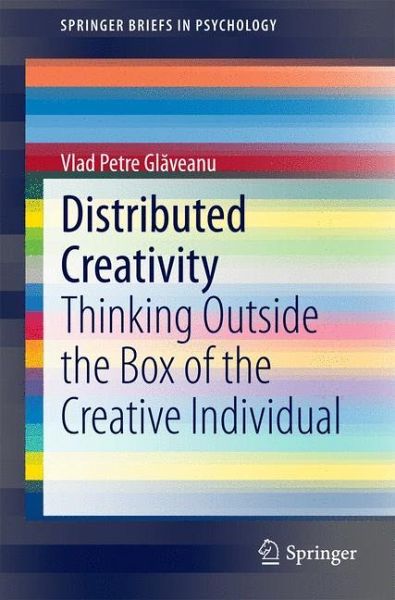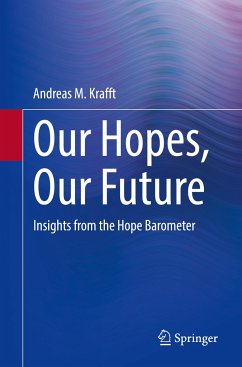
Distributed Creativity
Thinking Outside the Box of the Creative Individual

PAYBACK Punkte
25 °P sammeln!
This book challenges the standard view that creativity comes only from within an individual by arguing that creativity also exists 'outside' of the mind or more precisely, that the human mind extends through the means of action into the world. The notion of 'distributed creativity' is not commonly used within the literature and yet it has the potential to revolutionise the way we think about creativity, from how we define and measure it to what we can practically do to foster and develop creativity. Drawing on cultural psychology, ecological psychology and advances in cognitive science, this b...
This book challenges the standard view that creativity comes only from within an individual by arguing that creativity also exists 'outside' of the mind or more precisely, that the human mind extends through the means of action into the world. The notion of 'distributed creativity' is not commonly used within the literature and yet it has the potential to revolutionise the way we think about creativity, from how we define and measure it to what we can practically do to foster and develop creativity. Drawing on cultural psychology, ecological psychology and advances in cognitive science, this book offers a basic framework for the study of distributed creativity that considers three main dimensions of creative work: sociality, materiality and temporality.
Starting from the premise that creativity is distributed between people, between people and objects and across time, the book reviews theories and empirical examples that help us unpack each of these dimensions and above all, articulate them into a novel and meaningful conception of creativity as a simultaneously psychological and socio-material process. The volume concludes by examining the practical implications in adopting this perspective on creativity.
Starting from the premise that creativity is distributed between people, between people and objects and across time, the book reviews theories and empirical examples that help us unpack each of these dimensions and above all, articulate them into a novel and meaningful conception of creativity as a simultaneously psychological and socio-material process. The volume concludes by examining the practical implications in adopting this perspective on creativity.














